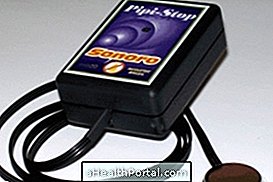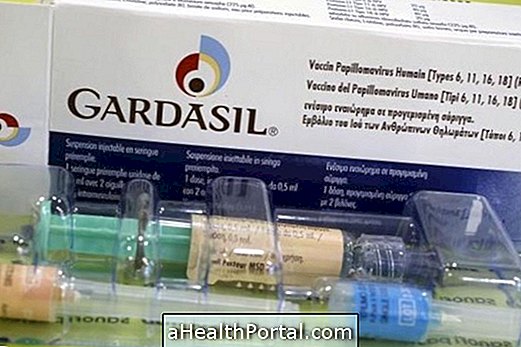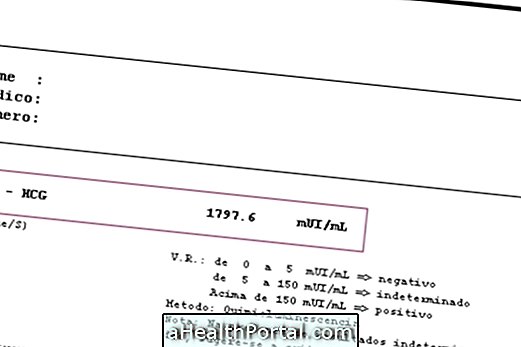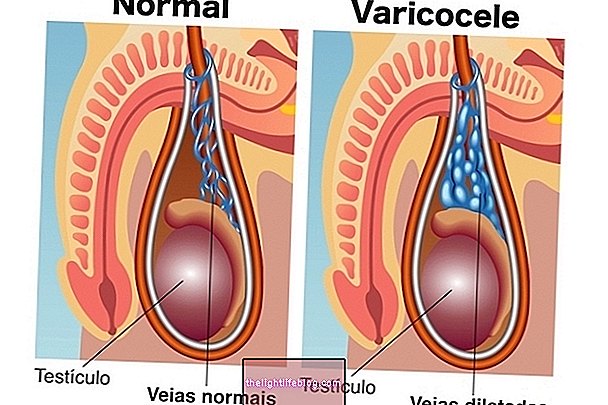The treatment for tonsillitis should always be guided by a general practitioner, since it varies according to the type of tonsillitis, since it can be bacterial or viral and in this case be treated with different types of remedies.
In some situations, tonsillitis may still become chronic and may require more prolonged treatment or even surgery.

Tonsillitis bacteriana
This is the most common type of tonsillitis, which arises when the throat is infected by bacteria, usually Streptococcus and Pneumococcus, causing symptoms such as severe pain when swallowing and pus in the tonsils. In these cases, it may be necessary to use antibiotics, the most common being:
- Penicillin;
- Amoxicillin;
- Cephalexin.
However, there are some people with a history of severe hypersensitivity reactions to these drugs, called beta-lactams and therefore, these people need to be replaced by azithromycin, clarithromycin or clindamycin.
These antibiotics should be used until the end of the pack or for the number of days indicated by the doctor, even if the symptoms are gone, to ensure that the bacteria are completely eliminated and do not gain resistance to the medicine.
In addition, the doctor may also prescribe analgesic or anti-inflammatory medicines, such as Paracetamol or Ibuprofen respectively, to relieve discomfort during treatment such as pain upon swallowing or headache. Also see some home remedies that may help relieve the symptoms of tonsillitis.
Viral Tonsillitis
In cases of viral tonsillitis, there is no remedy capable of eliminating the virus, as in cases of infection by bacteria, so it is up to the body to eliminate the virus. To facilitate this work, you should keep your home at home, drink at least 2 liters of water a day, and take vitamin C, echinacea and zinc supplements that strengthen the immune system.
As with bacterial tonsillitis, the doctor may also indicate the use of analgesics or anti-inflammatories, such as Paracetamol or Ibuprofen, to reduce headache and neck pain, facilitating recovery.
Treatment for chronic tonsillitis
The treatment for chronic tonsillitis is also done with the use of antibiotic medicines, as well as with analgesic and anti-inflammatory drugs, however, the general practitioner should be informed whenever a recurrence occurs.
When chronic tonsillitis arises, surgery for removal of the tonsils, which is usually done with general anesthesia, may be recommended, but the person may return home the same day. However, the recovery can last up to 2 weeks and you can usually feel pain during this time. See how recovery of the surgery to remove the tonsils.
Treatment for tonsillitis in pregnancy
The treatment for tonsillitis in the pregnant woman is delicate and should always be evaluated by the doctor who should verify its benefits and risks. There is no antibiotic that does not have a potential risk to the fetus, however, those who are safest in pregnancy are penicillin and derivatives, such as amoxicillin and cephalexin, or in case of allergy, erythromycin.
During the treatment for tonsillitis in the pregnant woman, the woman should rest throughout the treatment and ingest quite a lot of cold liquids, besides taking medicines for the fever, like Paracetamol, at most 500 mg every 8 hours.
Home treatment
In any case of tonsillitis, during treatment is recommended:
- Rest while you have a fever;
- Drink about 2 liters of water per day;
- Eat warm or cold pasty foods;
- Drink liquids without gas and low acid.
In addition, you can drink juices rich in vitamin C, such as orange juice, pineapple or kiwi fruit and drink Echinacea tea throughout the day to strengthen the immune system.





















